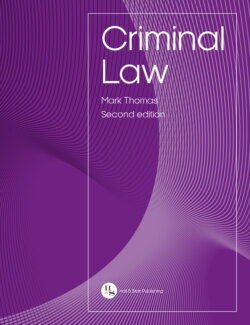Читать книгу Criminal Law - Mark Thomas - Страница 94
На сайте Литреса книга снята с продажи.
2.6.4.8Who decides whether there is a duty to act?
ОглавлениеAbove, you will see that the Court of Appeal in Khan identified that whether a duty to act exists is a matter for the jury. Jefferson (Criminal Law, 12th edn (Pearson, 2015)) argues that ‘Khan is wrong. Juries cannot expand and contract the various duties to act … juries cannot alter the outcome … by changing the law.’ Jefferson goes on to say that ‘… Singh represents the better view, because Khan might lead to a jury saying that because the victim is dead, there must have arisen a duty to prevent that death’. The issue has been addressed and resolved by the Court of Appeal in Evans. In particular, Lord Judge CJ explained that:
In any cases where the issue is in dispute … and assuming that the judge has found that it would be open to the jury to find that there was a duty of care, or a duty to act, the jury should be directed that if facts a + b and/or c or d are established, then in law a duty will arise, but if facts x or y or z were present, the duty would be negatived.
In essence, whether a duty to act exists is a matter for the jury once the trial judge has decided that there is evidence capable of establishing a duty.
